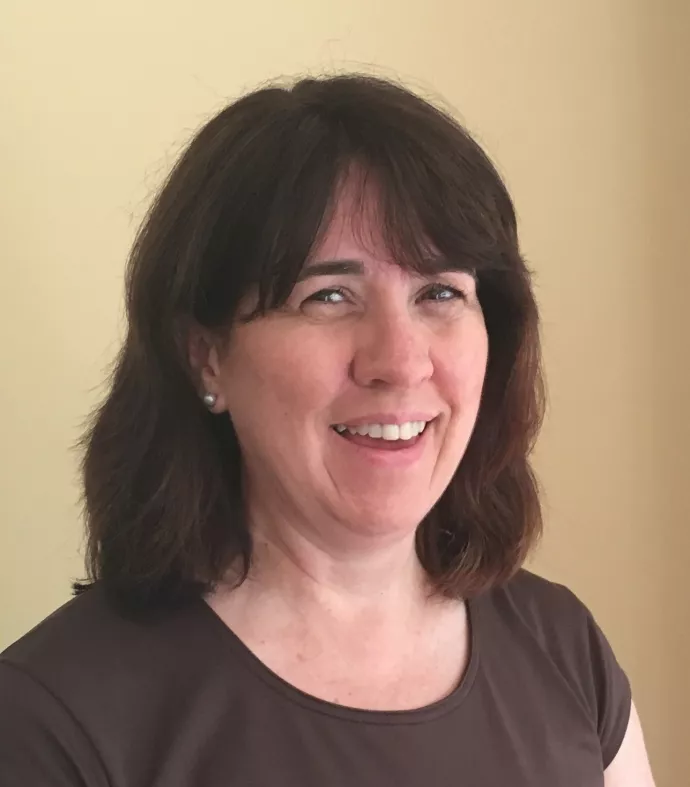
Experiential Learning Offers Students Career Ideas, Opportunities
Nimesha Basnayaka dove into the pool of experiential learning as a U of T Mississauga undergraduate and learned not only to swim, but to thrive. Today, the environmental studies graduate is working for the organization where she first did a year-long Department of Geography internship, and she has moved from her entry-level position into management.
Interestingly, Basnayaka, now a program manager with the Association for Canadian Educational Resources (ACER), is responsible for supervising the organization’s student interns herself.
“I have an understanding of what they’re going through and can see what a useful experience it is to have,” Basnayaka says. “Like me, they’re trying to figure out how what they are learning in school can be applied and which parts of their education apply to particular jobs, because it’s unlikely it will all fit.”
Experiential learning (EL), also referred to as experiential education or hands-on learning, isn’t a new idea. Learning by doing has been a part of the education system for decades in the form of internships, apprenticeships and co-operative education programs. Today, however, reflection is generally incorporated into experiential learning experiences, allowing the student to assess the experience and enumerate some of the lessons learned.
“Experiential learning is a priority for many levels of government, our campus and a student priority, as well,” says Felicity Morgan, director of the Career Centre at UTM. “It allows students to take what they’ve learned and discover how it works in an employment environment so they have both practical and theoretical knowledge. It helps them know where they are going and makes the transition to their next phase of life easier.”
UTM, says Morgan, offers a wide variety of EL opportunities for students. The Career Centre oversees a number of them, including work-study, job shadowing and the Career Learning Network. The Experiential Education Unit in the Office of the Vice-Principal, Academic and Dean supports all course-based experiential learning, including academic internships, community-engaged learning and the Research Opportunity Program. Similarly, the Centre for Student Engagement offers students experiential co-curricular volunteer opportunities. There is an extensive collaboration between all three groups to ensure that experiential learning opportunities are available to all students during their undergraduate studies.
“The landscape of experiential learning is changing rapidly,” says Rena Banwait, manager of experiential education for the Office of the Vice-Principal, Academic and Dean. “Employers today expect for students to have the necessary skillsets to enter into the workforce world-ready and job-ready. Through experiential learning, they can take a more holistic approach to their undergraduate studies and learn to bridge theory into practice, better preparing them for their future careers.
“They can also explore various opportunities to determine whether or not they are interested in pursuing careers in particular fields, and develop an understanding of what is required to work there.”
Cankat Zhirlioglu, a fifth-year political science student, began volunteering with the Centre for Student Engagement four years ago and eventually began working as a staff member.
“Co-curricular learning and experiential learning pretty much shaped my education,” says Zhirlioglu, an international student from Germany. “I’ve been a project leader, oversaw Youth Day [bringing high school students to campus] and planned the Alternative Reading Week activities. My responsibilities have increased every year and I’ve gained a lot of good work experience.
“After three or four years of experience in project management, I realize that’s what I want to pursue, and it’s great knowing what I want to do. I now have many useful, relevant skills—good communications, time management and risk management.”
Experiential learning can also make students aware of the breadth of the career opportunities that exist and the kinds of organizations that offer chances for employment and growth. Basnayaka, for example, had never heard of her current employer, ACER, prior to her internship. After spending 200 hours working there during her internship, she discovered that she loved working for a small organization where opportunities to “do a little bit of everything” abound.
“Even though I’ve been promoted, I still do some everything, such as measuring trees, budgeting, applying for grants,” Basnayaka says. “I hadn’t expected to find a job right out of university, and I didn’t even need an interview. I was very pleased.”
Morgan, the Career Centre director, says, “Our big goal is for each student to have at least one experiential learning opportunity. It’s a chance to get involved in deeper learning and will help them make stronger career decisions. They’ll be more confident, too, because they will know where they’re going. These opportunities also provide value to our larger community through the connections we make with community partners and employers.”
